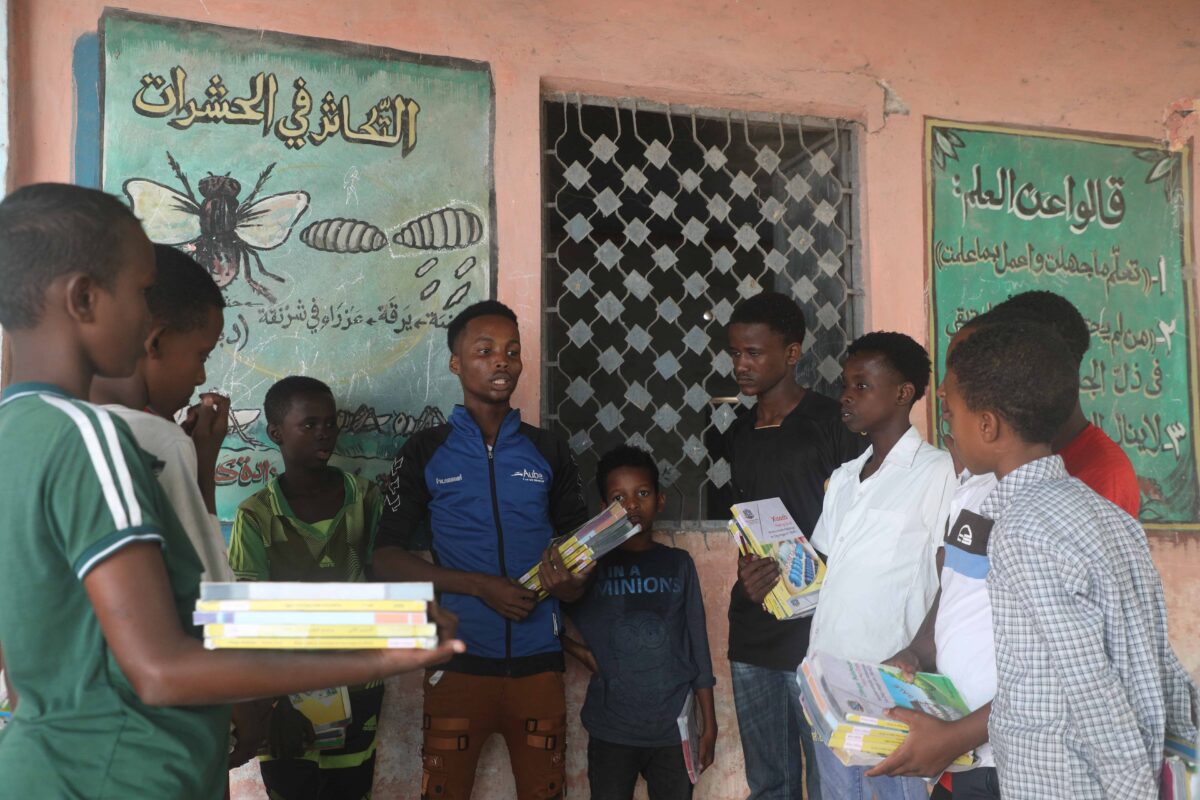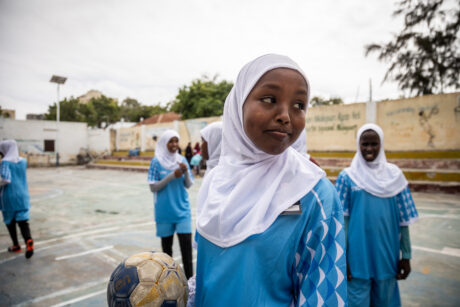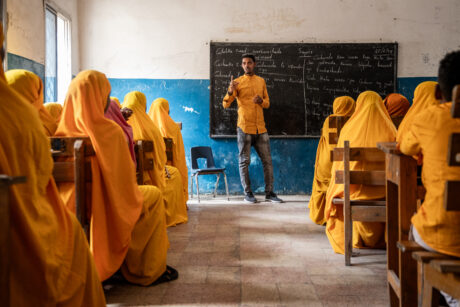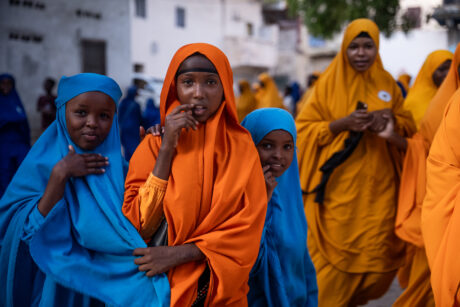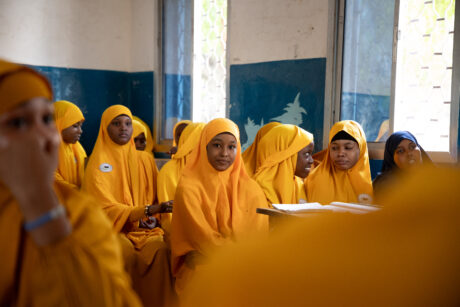Mogadishu, SomaliaHussein Sheik Sidow, age 17, is the oldest in his level two accelerated basic education class, but he is not discouraged by the age gap between him and his peers.
Hussein spent his childhood with his parents and 17 siblings in Bula Ahmed Cigow village in the Middle Shabelle region. Life in the village revolved around farming and herding animals, and there was no hope of going to school.
When Hussein came to Mogadishu to live with his older brother in 2021, his brother dissuaded him from pursuing an education and advised him to work to support his family back in the village. Hussein began to work as a shoe shiner, but in the back of his mind he always wanted to go to school one day, and he felt disheartened whenever he saw someone his age or younger wearing a uniform on their way to school.
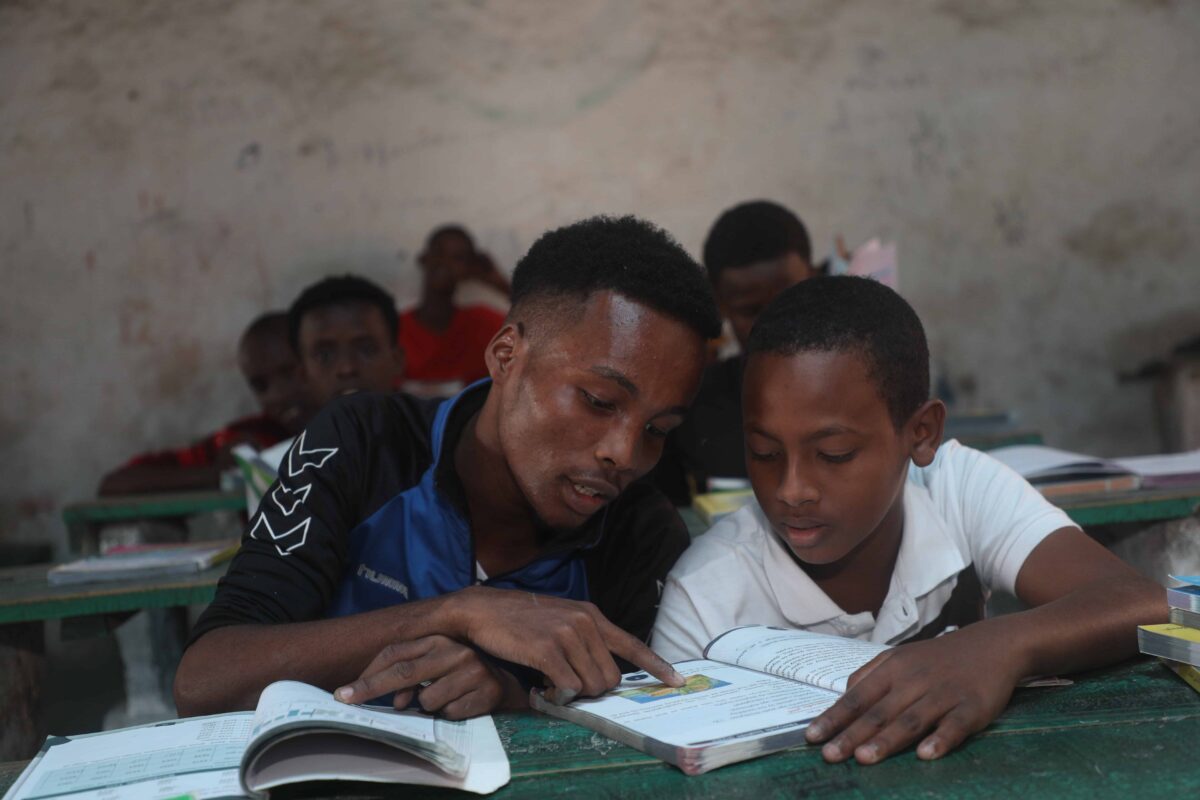
After several months of shining shoes in Mogadishu, Hussein’s fortune changed when his friend, another shoe shiner, missed work. He returned the next day and told Hussein that he had enrolled in a free education program. Excited by the news, Hussein asked his friend to take him to Mujama Umulqura school to see if there was an opportunity available for him too. He met with the headteacher, who told him to come back the next day to enroll and take a placement test.
Bar ama Baro, meaning “Teach or Learn” in English, is an accelerated education program implemented by USAID in Somalia in partnership with the Ministry of Education, Culture, and Higher Education and Federal Member States’ Ministries of Education. The program expands access to quality accelerated basic education for out-of-school children to advance the government’s vision of ensuring all Somali children have access to quality education.
“I never really thought that I would get the opportunity to go to school and be in class studying,” says Hussein. “Education is the key to success and a good life. I feel like I finally got a chance to change my life — and the lives of my family — for the better.”
Accelerated basic education allows out-of-school children and youth to complete the eight-year primary cycle in four years and then transition into the formal school system or earn a government recognized certificate. Bar ama Baro has reached over 100,000 children in Somalia to date.
Once enrolled, Hussein was motivated to catch up on the education he had missed. He worked tirelessly to excel in his studies and quickly became one of the top-performing students in his class. Hussein still works as a shoe shiner in the morning and attends his classes in the afternoon, carrying his books with him to study and do homework whenever he does not have customers.
Hussein has gained knowledge, skills and confidence that have transformed his mindset and given him hope for the future. He aspires to become a math teacher one day to help educate children, particularly those like him who are from poor families.
